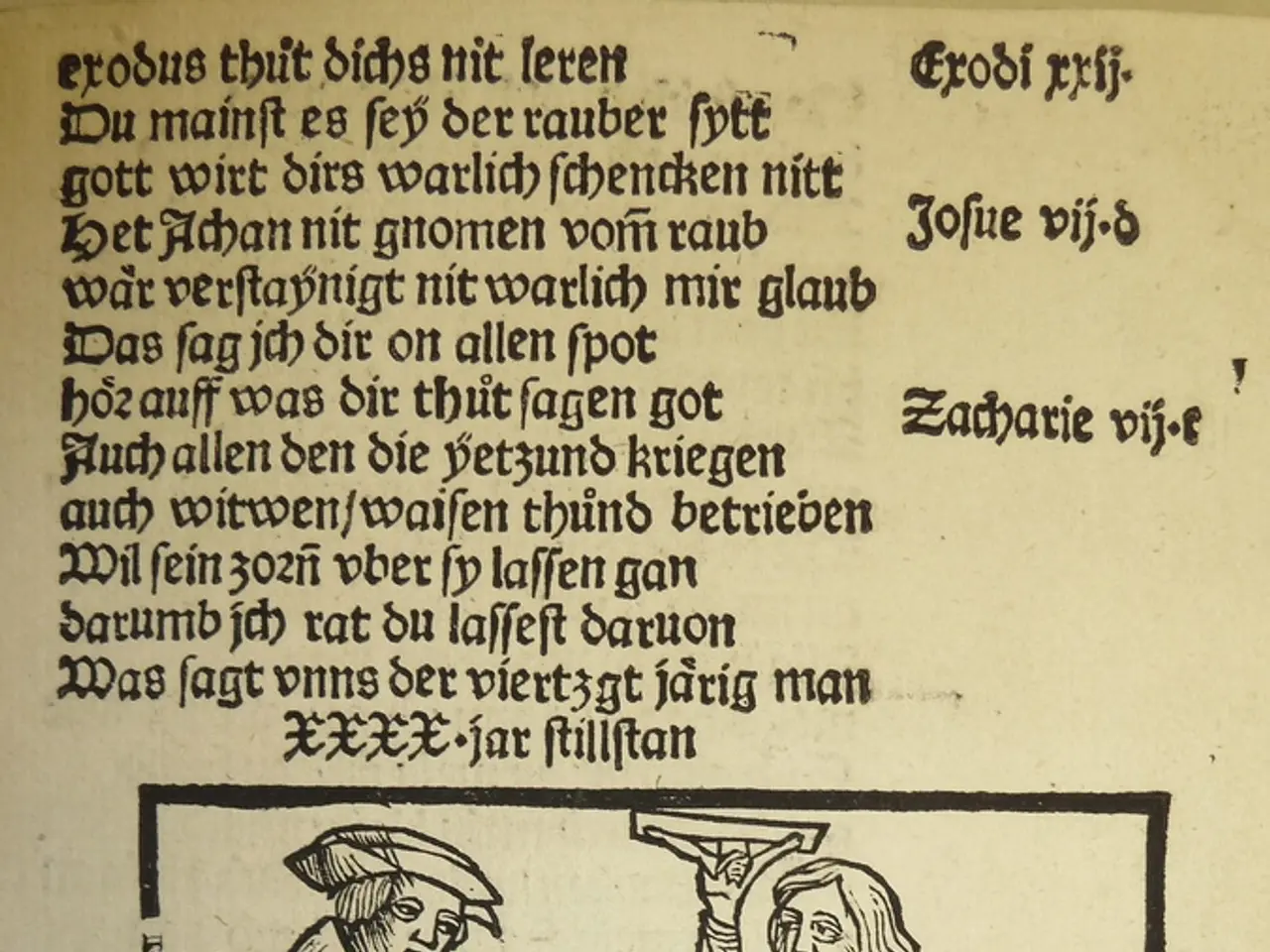Springer Nature unveils a novel tool designed to identify unusual, labored language
In a bid to uphold research integrity and combat the rising issue of fake research, Springer Nature has launched a new tool designed to detect non-standard phrases in manuscripts submitted to its journals. The tool, which leverages a database of known problematic phrases and advanced screening algorithms, is aimed at identifying "awkwardly constructed" or "excessively convoluted" phrases—often called "tortured phrases"—that authors might use to evade plagiarism detection[1][2][4].
The new tool is based on the Problematic Paper Screener's (PPS) tortured phrases catalogue, a publicly available resource created by researchers Guillaume Cabanac, Cyril Labbé, and Alexander Magazinov. By detecting these unusual and suspicious phrases at the submission stage, Springer Nature hopes to prevent the publishing of potentially fake or problematic research, thereby saving time for editors and reviewers[1][2][4].
This initiative is part of Springer Nature's broader commitment to research integrity. Earlier this year, the publishing giant unveiled an AI tool (Geppetto) to detect AI-generated text in research manuscripts, which was later donated to the STM Integrity Hub[3]. The company has also developed an in-house tool called Snappshot to identify duplicate or manipulated images in submitted manuscripts[5].
The challenge of fake research affects everyone, and it requires a collective effort to combat it. Tamara Welschot, head of research integrity at Springer Nature, reiterated this sentiment, stating, "The challenge of fake research affects everyone and requires collective effort to combat it."
It's worth noting that the article does not mention any specific whistleblowing incident. Maria Burke wrote the article "Royal Society of Chemistry changes direction on open access rollout following community feedback"[6], but this piece does not relate to the topic of Springer Nature's new tool.
As Springer Nature continues to innovate and develop new tools for research integrity checks, the publishing industry can look forward to a future where the quality and authenticity of research are upheld, ensuring the dissemination of reliable and valuable knowledge.
References: [1] https://www.nature.com/articles/d41586-021-02725-2 [2] https://www.nature.com/articles/s41598-021-95709-w [3] https://www.nature.com/articles/d41586-021-02725-2 [4] https://www.nature.com/articles/s41598-021-95709-w [5] https://www.nature.com/articles/s41598-021-95709-w [6] Burke, M. (2021). Royal Society of Chemistry changes direction on open access rollout following community feedback. Research Information, 9(3), 128-132. https://doi.org/10.1017/s2058054721000360
- By incorporating technology like the Problematic Paper Screener's tortured phrases catalogue and AI tools for detecting AI-generated text and manipulated images, Springer Nature aims to advance health-and-wellness by upholding the environment of research integrity, ultimately leading to the dissemination of accurate and credible science.
- In line with the commitment to research integrity, Springer Nature's new tool for detecting non-standard phrases, along with other initiatives such as Geppetto and Snappshot, demonstrates the company's active role in promoting science, health-and-wellness, and therapies-and-treatments by combating fake research and ensuring the authenticity of published work.




